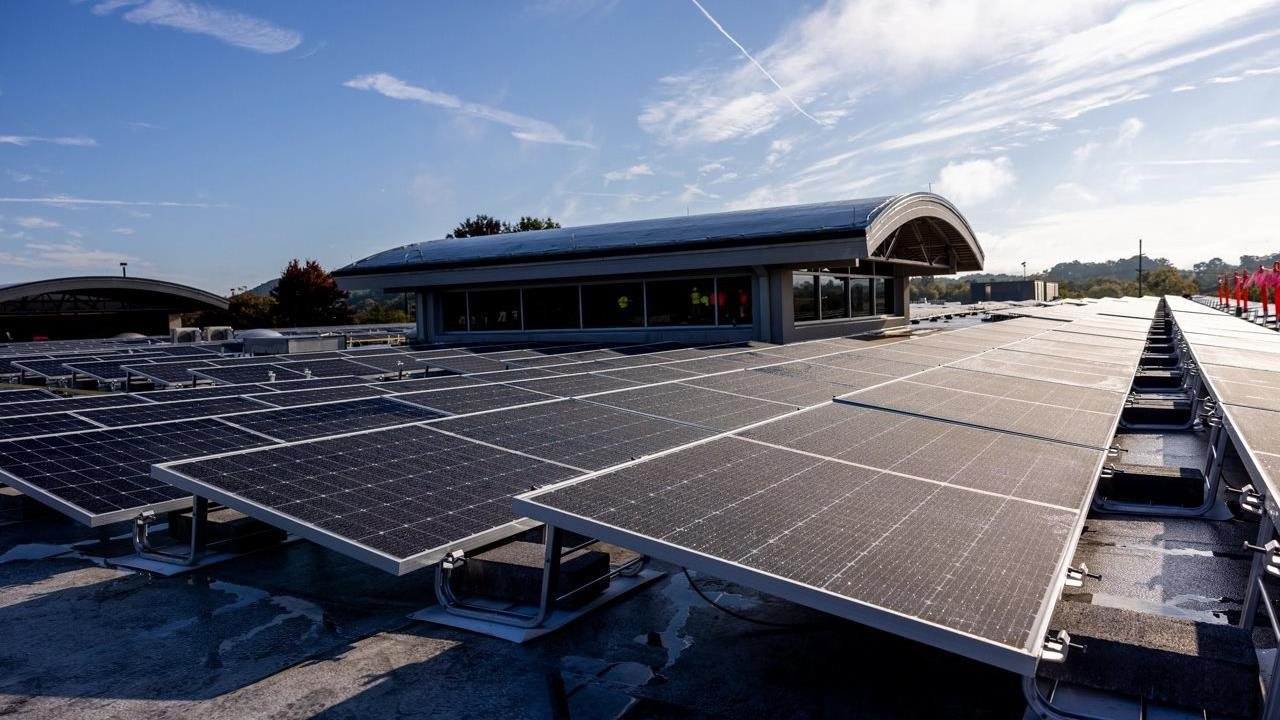
(BPT) – From building homes, offices and all other private and public structures used every day, the construction industry touches the lives of everyone. Given the impact and scale of construction, it’s essential that the industry find ways to reduce its environmental impact and embrace sustainable practices.
According to the World Green Building Council®, buildings are responsible for 39% of global energy-related carbon emissions. About 28% comes from operational emissions — including the energy used to heat, cool and power buildings — and the remaining 11% from materials and construction.
However, the industry is changing. One company that is committed to its long-term vision for sustainability is Clayton®, a national builder of attainable, single-family homes.
The homebuilder recognizes that it has a responsibility to carefully manage and minimize the environmental impact of the homes they sell, as well as their operations. Through homebuilding innovations, waste reduction, resource conservation efforts and philanthropic partnerships, Clayton aims to meet communities’ needs today while opening doors to a better life for generations to come.
“Focusing on sustainability is the right thing to do for the communities we serve and the world we live in. As builders committed to attainability, we know that every dollar counts, which is why we tackle waste in all of its forms — from materials and resources to the efficiency of our build process. We also recognize our unique opportunity to improve access to home energy efficiency, something our homeowners want and need,” said William Jenkins, Senior Director of Environment and Sustainability at Clayton. “Ultimately, these efforts help us to fulfill our vision to develop housing innovations that improve lives and build a better tomorrow.”
Building with sustainability in mind
Clayton builds homes that can help homeowners save money on utilities while also conserving the planet’s natural resources. Clayton’s eBuilt® homes are built to the U.S. Department of Energy’s Zero Energy Ready Home (DOE ZERH) specifications. These homes can save homeowners up to 50% on annual energy bills1 and, when paired with a renewable energy system, can offset most or all the home’s annual energy use.
Beyond designing and building homes with energy-efficient features, Clayton is working to conserve resources and recycle construction materials. Clayton purchases materials in bulk and works with its suppliers to save on packaging and shipping of items like lumber, siding and sheetrock. These materials are often ordered pre-cut to simplify their use in construction and drive down scrap. The builder’s ISO® 14001 program2 focuses on reuse and recycling to ensure excess materials don’t go to waste. In 2022 alone, Clayton diverted over 51,000 tons of waste from the landfill.
Targeting carbon emissions
Clayton is committed to reducing greenhouse gas emissions in its operations, specifically targeting the emissions from its consumption of fuel and purchased electricity. To accomplish this, the company is modernizing its fleet with hybrid vehicles and electric forklifts.
At Clayton Sulphur Springs, the homebuilder has installed a 200-kilowatt solar carport system. This system produces enough renewable energy to account for 30%-40% of its electricity usage. Clayton will continue to expand its reliance on renewable energy in its operations and install several solar energy systems at home building facilities in East Tennessee, Arizona and at Clayton’s Home Office.
Developing water-saving innovations
Water is becoming scarce in many regions of the world, especially in the American Southwest. The Southwest is considered one of the more sensitive regions in the world for increased risk of drought caused by environmental changes. In New Mexico, droughts are expected to worsen in the next half century, making water an even more precious resource.
When building homes, drywall and painting tools must be cleaned to ensure home construction quality. Previously, a building facility in New Mexico used fresh water each time they cleaned the drywall mud and paint tools. However, to help combat drought, Clayton Albuquerque has developed an in-house process to filter the water used to clean the tools three times before it is directed to the municipal wastewater system. This innovation saves over 100,000 gallons of water a year!
Contributing to a sustainable future through partnerships
Clayton is committed to giving back to the communities in which it operates. One way it does so is by partnering with the Arbor Day Foundation®, the largest nonprofit membership organization dedicated to planting native tree species in established forests.
Planting trees helps to restore critical forest ecosystems and is an effective way to help combat climate change. Large-scale reforestation projects are planned in strategic locations, leading to cleaner water, improved air quality and increased biodiversity in their surrounding regions.
This year alone, Clayton will plant 1.19 million trees in forests of great need in 11 different states across the United States. By 2025, Clayton and the Arbor Day Foundation will have planted over 4.47 million trees since their partnership began in 2022.
Drive change to build a better tomorrow
Clayton seeks to evolve the housing industry by driving change through sustainability and innovation. With each home they build, they strive to create a reality where sustainable living isn’t just a dream — it’s simply the way we live.
To learn more about how Clayton is working toward its sustainability goals, visit https://www.claytonhomes.com/sustainability/.
1. Energy.gov ZERH guidelines
2. ISO is the registered trademark of the International Organization for Standardization
All trademarks are the property of their respective owners.
